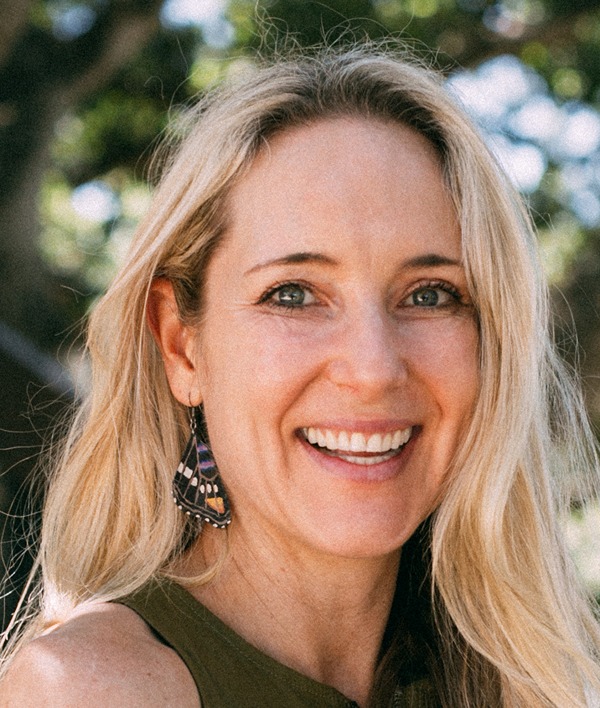
Wise Effort: The Science and Practice of Putting Your Energy Where it Matters Most
© 2023 Diana Hill, PhD
I’m 44-years old and I’m still running. On workday mornings, I jog along a windy road overlooking the coast of Santa Barbara, and on weekends I’ll run down a mountain bike trail trying to keep up with my teenage son.
My running has changed a lot over the years. I remember being eight and running along the creek path behind our house in search of Eucalyptus pods to use as little hats in my fairy house. In high school I ran cross-country with my best friend, keeping a moderate pace so we could prioritize chatting about our day.
But there was also a time in my life when running became rigid, depleting, and rule-governed. I would hop on a treadmill at 5 am and set the level to 10, because my mind told me I had to. Or, I would run with an injured knee, to experientially avoid the guilt of taking time off.
Many therapists told me in my recovery from disordered eating that I should “just stop running.” Take up swimming. Water aerobics! Yoga? But what about my 8-year-old self that loves to run in nature? Or my adult self that craves the solitude, time to talk with friends, and stress relief that running provides? Do I have to give her up too?
You may not be a runner, but you may relate to having an ambivalent relationship with drive. There’s a slippery slope between loving your work and workaholism, engaged parenting and helicopter parenting, loving running and running yourself into the ground.
The Paradox of Striving
When you take a closer look at striving, you may start to see that it’s not all good or bad. It’s a paradox.
If you are a leader at work, an accomplished musician, or head of the Parent Association, people may admire your determined effort. Your tenacity, stamina and ability to get stuff done has served you well. But there’s a cost when you lack equanimity and your effort leads you to isolate, compartmentalize, become self-focused, or miss out on the big picture. For example:
- Pushing yourself harder under stress can negatively impact your physical health
- Ambition at work can be lonely when you compete with your colleagues
- Striving can backfire in relationships when you set high expectations for people you love
- Hustling to get ahead can reinforce disparities and inequities

In their book Both/And Thinking, Wendy Smith and Maryanne Lewis define a paradox as “contradictory yet interdependent elements that exist simultaneously and persist over time.” Living with contradictions is uncomfortable. We want to be high achievers at work but also appreciate our downtime. We crave learning and growth but also seek being ok with things as they are. We want to plan for the future, but also enjoy the present.

When faced with a paradox, we often feel like we have to choose. Research in psychology has repeatedly shown this tendency is especially dominant when we’re under stress. Strivers might find themselves teeter-tottering from straight As to withdrawing altogether, from following their perfect eating plan to saying “F— it” and eating the whole box of cookies.
Either/or thinking isn’t the best way to resolve a paradox. Instead of having to choose between aiming high or missing out, you can start recognizing the deeper questions that underlie the paradox of striving. How can you creatively explore and hold both simultaneously: persistence and letting go, effort and surrender, being alert and at ease? This is Wise Effort.
Wise Effort
The term “Wise Effort” comes from The Eightfold Path of Buddhism, along with wise intention, wise view, wise speech, wise livelihood, wise action, wise mindfulness, and wise concentration. Wise effort is described as the purposeful dedication of your energy toward what is wholesome (helpful) and abandoning what is unwholesome (unhelpful). Insight meditation teacher Gil Fronsdal described wise effort to me on the Your Life in Process Podcast in simple terms:
“If you are making it worse, stop. If you’re not making it better, start making it better. And if you are making it better, keep doing it.”
Wise Effort requires us to be psychologically flexible. In Acceptance and Commitment Therapy (ACT) psychological flexibility is your ability to stay aware, open, and engaged with what you care about, even in the presence of obstacles. There are over 1,000 randomized controlled trials demonstrating that when you are more psychologically flexible, you’re more likely to stick with healthy behaviors, are a better parent, can navigate stressors more effectively, and have better mental health overall.
Joseph Ciarrochi, lead researcher in the area of ACT, defined psychological flexibility in the Wise Effort Together Summit as:
- Connecting with the present moment
- Persisting at the things you care about
- Being able to change and adapt as challenges arise
While these aren’t always easy to practice, it’s clear that when we do engage in any of these ways of being, even momentarily, life seems to shift for the better. With psychological flexibility you engage in the Wise Effort of putting your energy toward what matters most.
Getting Curious
One way to explore Wise Effort is to get curious about how you are applying your effort currently, and whether it aligns with your values.
Draw out the diagram below on a sheet of paper and get curious about the following categories.

Unwise Effort:
- Burn-out: High Effort and Away From Values. Where are you putting a lot of effort that doesn’t align with your values? Are you acting in ways that are harmful to you, harmful to others, or doing it because you are following rules, “shoulds,” and expectations of others? What environments are burning you out?
- Not worth-it: Low Effort and Away From Values. What low effort activities are wasting your precious time and energy? For example, scrolling on your phone, mindless eating, watching the next Netflix show that rolls in. What are you avoiding or procrastinating by engaging in these not worth-it activities?
Wise Effort:
- Worth-it: High Effort and Toward Values. What do you care most about? What’s worth putting effort into? What’s of most benefit to your well-being and the well-being of others?
- Savor-it: Low Effort and Toward Values. What nourishes you and refuels your energy? Where do you want to be more present? What do you want to savor with others?
With greater awareness of your effort and values, you can begin to uncover what a meaningful life means to you and take steps toward your values, while surrendering to the process. With Wise Effort you can uncover your inherent compassionate heart and use it to guide your life force in the world.
When you are engaged with meaningful pursuits, Wise Effort refuels your energy so that you don’t become depleted. And when you take time to savor the good that is already here, you can keep running, enjoying the view along the way.
ABOUT THE AUTHOR
 Diana Hill, PhD is a clinical psychologist, international trainer, and sought-out speaker on Acceptance and Commitment Therapy (ACT) and compassion. Diana hosts the upcoming Wise Effort Together Summit and Your Life in Process podcast and is the author of ACT Daily Journal and The Self-Compassion Daily Journal (to be released March 2024). Diana works with organizations and individuals to develop psychological flexibility so that they can take wise action toward fulfilling and impactful lives. Integrating her over 20 years of meditation experience with yoga and psychological training, Diana is on the board for the Institute for Better Health, blogs for Psychology Today and Mindful.org, and guest teaches at InsightLA, Blue Spirit Costa Rica, PESI, Praxis Continuing Education, Yoga Soup, and Insight Timer Meditation. Diana practices what she preaches in her daily life as a mom of two boys and bee guardian. Go to drdianahill.com or her channels on Instagram, Facebook, Twitter, YouTube (@drdianahill) to learn more.
Diana Hill, PhD is a clinical psychologist, international trainer, and sought-out speaker on Acceptance and Commitment Therapy (ACT) and compassion. Diana hosts the upcoming Wise Effort Together Summit and Your Life in Process podcast and is the author of ACT Daily Journal and The Self-Compassion Daily Journal (to be released March 2024). Diana works with organizations and individuals to develop psychological flexibility so that they can take wise action toward fulfilling and impactful lives. Integrating her over 20 years of meditation experience with yoga and psychological training, Diana is on the board for the Institute for Better Health, blogs for Psychology Today and Mindful.org, and guest teaches at InsightLA, Blue Spirit Costa Rica, PESI, Praxis Continuing Education, Yoga Soup, and Insight Timer Meditation. Diana practices what she preaches in her daily life as a mom of two boys and bee guardian. Go to drdianahill.com or her channels on Instagram, Facebook, Twitter, YouTube (@drdianahill) to learn more.
Posted by mkeane on Friday, October 13th, 2023 @ 12:55AM
Categories:
